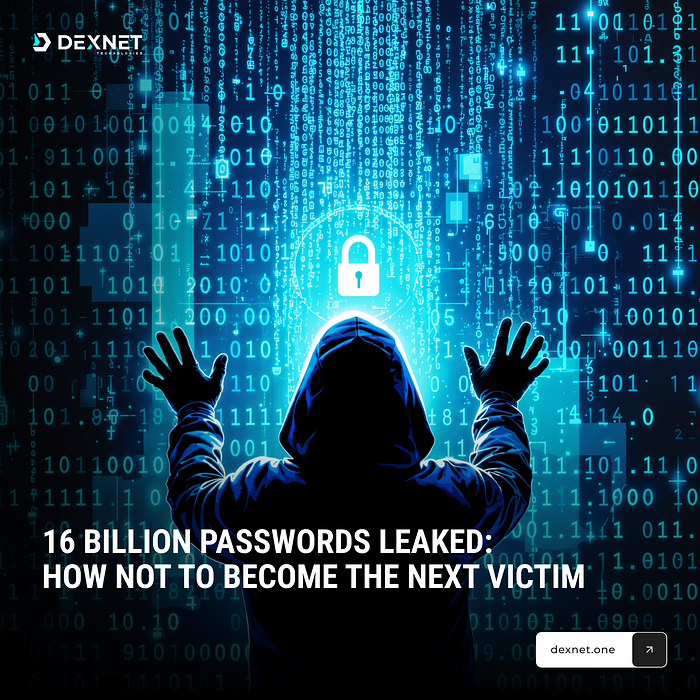16 billion passwords leaked: how not to become the next victim
 Dexnet
DexnetThe world is on edge again: over 16 billion passwords have been exposed — including those from Apple, Google, Facebook, and dozens of other popular services. And this isn’t old, outdated information. According to Cybernews researchers, most of these login credentials are valid for 2024–2025.

The scale is massive: from everyday iPhone users to corporate Google Workspace accounts. And it’s not just about passwords — the leak also includes emails, IP addresses, and potentially access to internal services.
Even the FBI has issued a warning: change your passwords immediately and never reuse the same password across different platforms.
Why it matters
So-called infostealers — malicious programs that silently harvest your data — are the main reason behind this global breach. These tools send everything, from passwords to active login sessions, to hackers, who compile “mega databases” later sold for pennies on underground forums.
The consequences? Mass phishing attacks, unauthorized access to your bank accounts, hijacked social profiles, or even blackmail. Often, it happens silently — all you see is a notification: “Your password has been changed.”
What to do right now
Cybersecurity experts recommend taking action immediately:
✅ Change your passwords on all critical accounts, especially if you haven’t done so recently
✅ Never reuse the same password across different platforms
✅ Enable two-factor authentication (2FA) wherever possible
✅ Use trusted password managers like Bitwarden or 1Password
✅ Check if your data has been compromised at haveibeenpwned.com✅ Never store sensitive files on centralized cloud services without encryption
The time has come to rethink your approach — moving from centralized platforms to decentralized alternatives, where users are no longer just customers, but true owners of their data.
DexNet: decentralization that works
DexNet is building the next-generation digital infrastructure where your data is no longer dependent on a single point of failure. Based on a decentralized network of nodes, DexNet offers an alternative to conventional, vulnerable systems.
DexNet isn’t just talking about the future — it’s building it. Today, you can already access real, working solutions inside the ecosystem, proving that security, privacy, and autonomy are not just theoretical concepts. One such solution is DexCloud.
DexCloud: where privacy isn’t a feature — it’s the standard
Massive data leaks aren’t only about passwords — they expose the weakness of centralization, the Achilles’ heel of today’s internet.
Most popular cloud services — Google Drive, iCloud, Dropbox — are centralized. Your files sit in one place, controlled by a single operator, vulnerable to breaches, deletions, or censorship.
The solution? DexCloud — a decentralized storage platform for the new era.
How DexCloud works:
✔ Your files are fragmented and encrypted locally, before leaving your device
✔ Encrypted fragments are distributed across a decentralized network of DexNode devices
✔ Only you hold the keys to rebuild and access your files — no one else can see or retrieve your data
✔ Each file fragment is stored with backup copies, ensuring access even if one node fails
No central servers. No intermediaries. No surveillance. Even during outages, your data remains accessible through backup nodes. The system is resilient, autonomous, and truly private.
👉 Try it now: DexCloud.one
Conclusion
Every major data breach reminds us of one thing: in a centralized world, true privacy doesn’t exist. But there is an alternative — and it’s already working.
Change your passwords. Enable 2FA. And most importantly — switch to tools where your data actually belongs to you.
DexCloud — uncompromising storage for those who value privacy. DexNet — the Web4 infrastructure reshaping how we protect and control our data.
Explore DexCloud today: DexCloud.oneDon’t wait for the next leak. Take control now!
Subscribe to my newsletter
Read articles from Dexnet directly inside your inbox. Subscribe to the newsletter, and don't miss out.
Written by
